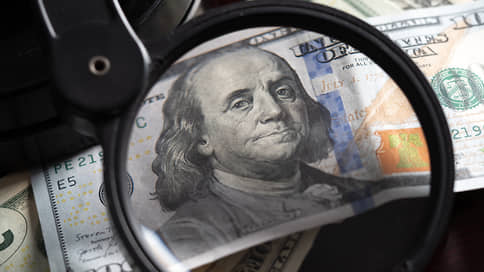Russian banks stepped up the fight against unfriendly currencies
[ad_1]

In the last ten days of August, banks stepped up their fight against the currency of unfriendly countries. Raiffeisenbank, which suspended the acceptance of cash currency a month ago, has tightened the corresponding rules for non-cash accounts. Citibank stops accepting dollars and euros at its cash desks. At the same time, Sovcombank is beginning to sell the cash currency of unfriendly countries at the rate of the Moscow Exchange without a premium, increasing the volume of supply.
Raiffeisenbank On August 21, he announced another tightening of the rules for working with currency. From September 1, the bank commission for crediting funds from other credit institutions in US dollars to the accounts of individuals, small and micro businesses will be 50% of the transfer amount, at least $1,000, but not more than the amount received (the maximum commission will be $10,000). “The bank is forced to limit the number of incoming transfers in US dollars due to changing market conditions,” it says in its message.
Raiffeisenbank introduced similar restrictions on June 20, but then an exception was made for legal entities, individual entrepreneurs and private banking clients. And from August 1, the bank temporarily suspended the acceptance and purchase of cash currency from individual clients.
A similar step, only from August 22, undertook And Citibank — At the end of last week, he informed customers that their sale and deposit of US dollars and euros in cash would no longer be available at the cash desks for CitiOne and Citigold banking packages.
At the same time, Citibank, like Raiffeisenbank, did not restrict the sale of cash currency. Moreover, from August 15, Citibank introduced a special rate for the purchase of cash by customers in euros and US dollars, and for purchases up to 40 thousand rubles. the bank does not even plan to demand documents from the buyer.
The policy was also picked up by banks with Russian capital. So, Sovcombank announced that it was setting a special rate for buying and selling US dollars and euros. As Philip Agrachev, head of the department of client operations in the financial markets of Sovcombank, explained to Kommersant, the bank “manages the number of banknotes at the box office.” “It is better to reduce / increase the discount for the client than to go into prohibitive measures or commissions for depositing,” he clarified.
According to Mr. Agrachev, Sovcombank will offer customers cash currency at the exchange rate without markups, and will increase the volume of supply to test the depth of demand. “We expect that additional attention to quotes will allow the bank to increase the turnover of currency trading and, accordingly, increase profitability, which means that it will be even more efficient to manage the liquidity of cash currency,” says Philip Agrachev. According to him, the action will last until the sale of excess cash currency, after which the bank will be ready to stimulate the purchase of currency from the population.
According to market participants, such actions of banks are connected with the lack of demand for cash currency. As ADB Vice President Alexei Voylukov explained to Kommersant, demand is limited today, and during the period of appreciation, this is not the first time that citizens, on the contrary, carry dollars to banks:
“The Central Bank and the Ministry of Finance do not carry out operations with cash, the exchange rate is high, so banks have to come up with promotions.”
In turn, the managing partner of the Veta expert group, Ilya Zharsky, believes that banks can sell dollars and euros in order not to keep the accumulated volumes on their balance sheets: “No significant transactions are carried out with them, which means that these currencies have ceased to be profitable, Previously, there were no unfriendly countries from the business side for the currency of unfriendly countries, and issues of parallel imports can be resolved without cash, so banks simply get rid of unnecessary cash in this way.”
[ad_2]
Source link





